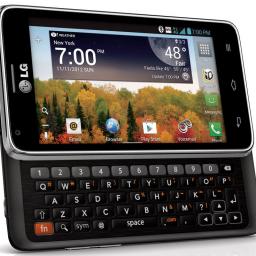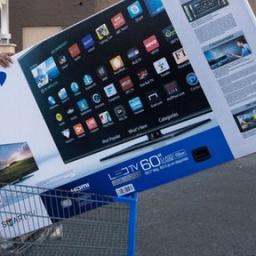Late lament on the death of slide-out keyboards
 Isn't it strange how all the high-end smartphones with keyboards have disappeared? There isn't a desirable smartphone with a keyboard on the horizon. The original Motorola Droid was the phone that started the Android phenomenon, yet the Droid 5 never materialized.
Isn't it strange how all the high-end smartphones with keyboards have disappeared? There isn't a desirable smartphone with a keyboard on the horizon. The original Motorola Droid was the phone that started the Android phenomenon, yet the Droid 5 never materialized. For years, buying a smartphone with a keyboard has meant settling for less than the latest and greatest technology on the market. There hasn't been a top-tier smartphone with keyboard since the Samsung Epic 4G set the bar in August, 2010. The carriers treat sliders as messaging phones for teens rather than tools of pros, and adjusted their asks and advertising respectively. There's also the myth that there's an Android phone out there for everyone. The differences in Android phones were huge. Slide-out keyboard, small screen, large screen, slim or bulky. Now it seems like phones are all merging into the same basic design principle; slim with a huge screen, leaving a market gap that any competitor could jump into, much the way Android did when the one-size-fits-all iPhone dominated.
When Android came along and smartphones began to take off, handsets with keyboards did very well for Sprint. The Samsung Moment, the EVO Shift, the Epic 4G: "We sold multimillions of those," said Kaufman. When Sprint asked customers whether they'd buy a physical keyboard the next time around - not so long ago - 75 percent of existing QWERTY users said they would. "We went out and built the LG Mach and the Photon Q. It was a big party and nobody came." So much for surveys. "Half of your customers buy the iPhone [...] boom, take them out of the equation." In addition, "the market has moved to everyone buying iconic phones... people see the advertising, they walk in, they want to buy a Galaxy S III."
You might be thinking a slide-out keyboard is old technology, but there are advantages. People can type much faster and error-free on hardware keyboards. Being able to see everything on screen is a huge plus, and playing games is infinitely more enjoyable with tactile, mechanical buttons.
As a devout user of physical QWERTY keyboards, I'm pretty sure I'm screwed.



